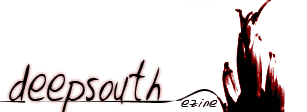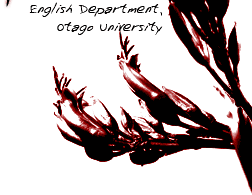A Wind Harp
Cilla McQueen
Otago University Press
$34.95
Reviewed by Karl Gorringe
Bluff-based Cilla McQueen is one of New Zealand’s best known and most published poets. This recently recorded CD brings together readings of poems from three of her collections, Markings (2000), Axis (2001) and Soundings (2002), set to music by Dunedin musicians The Blue Neutrino. The three collections cover twenty years of her work, so the CD also serves as a retrospective look at McQueen’s work thus far. Anyone who has been to a live Cilla McQueen reading will attest to the lyrical quality of her reading style, so in some ways it was an obvious decision to record her poems and set them to music.
The CD contains twenty one poems with musical accompaniment which at its best compliments the words and the softly authoritative voice of McQueen perfectly, and at its worst makes me think the musicians weren’t really in tune with the themes and concerns of the poetry. The CD works best when the musicians take a quiet back seat to the vocals, although there are tracks where there is definite magic in the air as musicians and poet come together to create a performance that enhances the effects of McQueen’s words.
There are some standout tracks. Among those with dark themes, “Frogs” is particularly effective. The apparently simplistic discussion of frog extinction hides an apocalyptic vision of the future, the music managing to skillfully convey the poem’s sense of impending doom. Likewise, the striking “Warpath”, where the uneasy juxtaposition of military themes with the pastoral and romantic is supported by music that perfectly captures the sense of uneasiness in the poem.
This is not to say that the collection is all doom and gloom. There are some lovely comic moments as well where the accompaniment perfectly captures the sense of light-heartedness and fun, like the doo-wop in the background of the charming love poem “Crikey”, likewise the music for “Recipe for One” is perfectly in keeping with the light mood of the poem.
The music can also be used to great effect to create a sense of atmosphere, such as in “Quark Dance”, with its slightly trippy, psychedelic accompaniment, and “Luncheon Cove”, with its evocative bird sounds complimenting a poem about Captain Cook, but taking a back seat to McQueen’s voice, which is rightly given primacy in the arrangement.
It doesn’t always work, such as in “The Rope”, where the music overshadows the poetry and uses rather annoying drums, and “Studio Poem”, where the accompaniment really adds nothing to the words.
But on balance most of the tracks achieve a lovely synthesis between words and music, and there are some truly startling arrangements on the disc. It’s a bit much to absorb in one sitting, but there is enough variety in both words and music to ensure that there is something here for nearly everyone. McQueen’s verse lends itself very easily to this kind of treatment, and this disc is a fine musical tribute to one of our best living poets.
(c) Karl Gorringe. All rights reserved.

